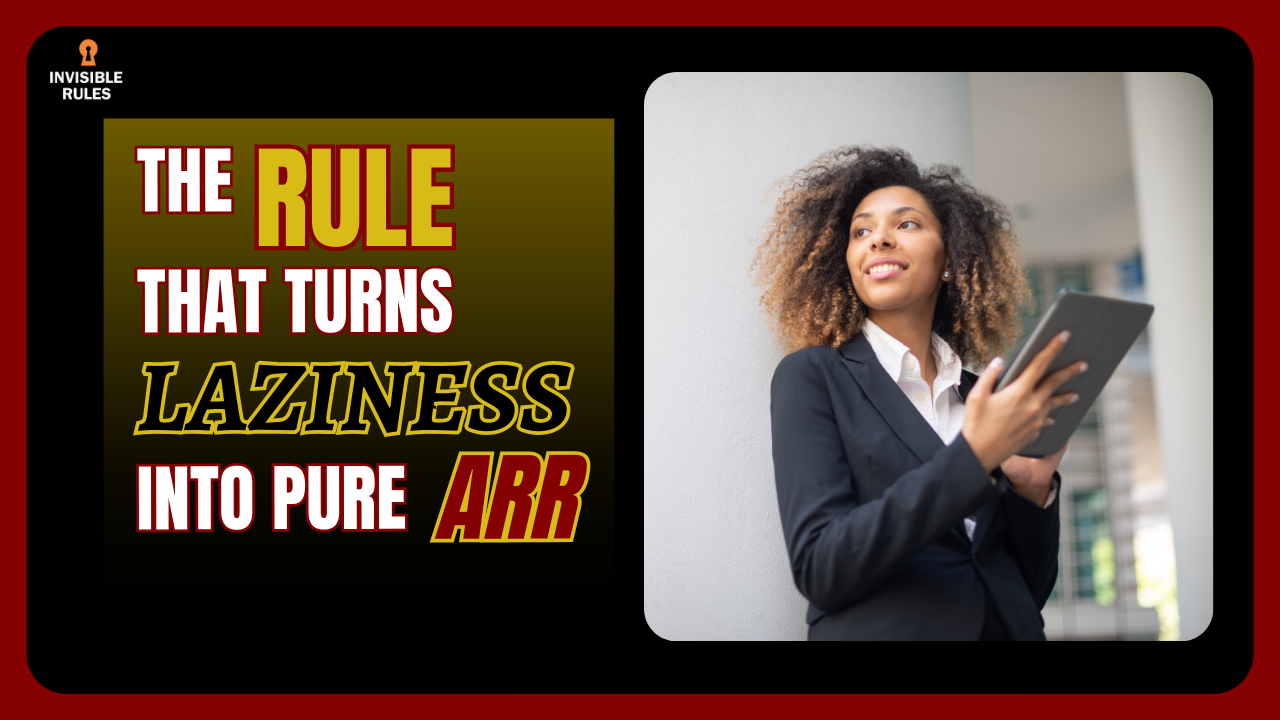- Invisible Rules
- Posts
- Stop Solving Problems. Start Making Sense
Stop Solving Problems. Start Making Sense
Why the most successful entrepreneurs sell clarity, not just solutions
TLDR; The old playbook is dead. In a world drowning in complexity, your customers aren't just buying a fix for their problems—they're buying a framework to understand them. Entrepreneurs who win are those who stop selling products and start selling clarity. They help people make sense of their world, and that is the only competitive advantage that matters.
In this issue, we'll tackle:
Why "problem-solving" is a race to the bottom in a saturated market.
The deep psychological need you're not addressing: The human drive for "sense-making."
How my last company pivoted from selling a tool to selling an epiphany—and why it changed everything.
The difference between building a product and building a new worldview for your customers.
Let's dive right in.
For decades, the gospel of entrepreneurship has been simple: find a painful problem, build a solution. We're taught to obsess over "pain points," convinced that a better mousetrap is the key to success.
This advice is now dangerously obsolete.
In today's market, your customers are drowning in solutions, buried under features, and paralyzed by choice. The real, unmet need isn't for another tool to solve an isolated problem. It’s for a map, a narrative that helps them understand why the problem exists in the first place and how it fits into the chaotic landscape of their life or business.
The most successful entrepreneurs aren't just problem-solvers. They are sense-makers. They understand that people don't just buy products; they buy from the person who helps them make sense of their world. Because when you do that, it not only makes them feel understood, it tells them they are in good hands.

Gif by metahitt on Giphy
Your Brain on “Aha!”
This isn't branding fluff; it’s fundamental human psychology. Researcher Nick Chater identified a core human motive that most business advice ignores: the powerful desire to make sense of our immediate experience. We are neurologically wired to seek patterns and create meaning.
When you help a customer make sense of their world, you are scratching a deep, cognitive itch. This triggers what’s known as cognitive fluency. Research shows that when information is processed easily, our brains release a small hit of positive affect. We feel good.
That "aha!" moment—when a complex idea finally clicks—is a powerful rush. That feeling of clarity doesn't just feel good; it builds profound, benevolent trust. The customer suddenly sees you not as a vendor trying to make a sale, but as a guide who genuinely understands their world. They believe you can get them to the promised land because you're the one who drew them the map.
From Market Research to Market Prophecy
I didn't learn this from a textbook. I learned it by nearly failing.
With my last startup, we were doing everything "right." We had a solid product doing great market research. We were solving a clear problem for clients who needed to understand their customers. We were doing relatively well, but it always felt like we were pushing a boulder uphill.
The game changed when we stopped focusing on the what (the research data) and started obsessing over our unique ability to explain the why. We realized the biggest issue our clients had wasn't a lack of data, but a terrifying inability to make sense of the rapidly shifting cultural trends that were impacting their business.
So we pivoted. We stopped selling "market research" and started selling "cultural sense-making." We refocused our entire product and narrative around helping our customers see and understand the deep cultural currents invisibly shaping their markets.
The result was explosive.
Sales cycles shortened. Deal sizes grew. Clients stopped seeing us as a vendor and started treating us as indispensable strategic partners. We weren't just delivering reports anymore; we were delivering clarity. We were helping them make sense of their world, and that was a value our competitors couldn't even begin to touch.
So, stop asking if you're solving a big enough problem. It’s a lazy question that leads to commodity solutions.
Start asking: "How can I help my customer make sense of their world in a way that no one else can?"
Solve for that, and you won't just build a product. You'll build a dedicated following.
My Provocative Question for You:
What is the one chaotic, confusing, and terrifying trend or shift in your industry that everyone sees but no one can explain? And how can you be the one to finally make sense of it for them?




Reply